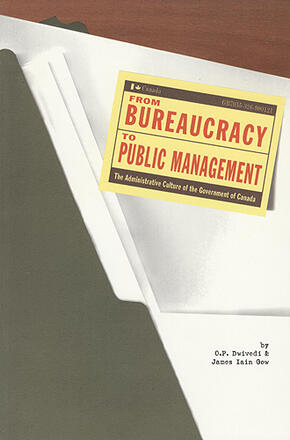
From Bureaucracy to Public Management
The Administrative Culture of the Government of Canada
Description
This book is about the systems of values, traditions, perceptions, and meanings existing in the Canadian federal public service since the First World War. Surveying that history, it considers the conflict of values arising from the attempt to add New Public Management values to older bureaucratic ones. These tensions are looked at from an ethical viewpoint, but also from that of the relationship between ends and means. Are the means proposed really likely to meet the ends proclaimed? Attempts to change a culture from the top down run against daily realities; the interests, training, and experience of all employees, elites, and others. Authors Dwivedi and Gow intend this overview to enable readers to appreciate the complex world of Canada’s public servants.
A joint publication with The Institute of Public Administration of Canada.